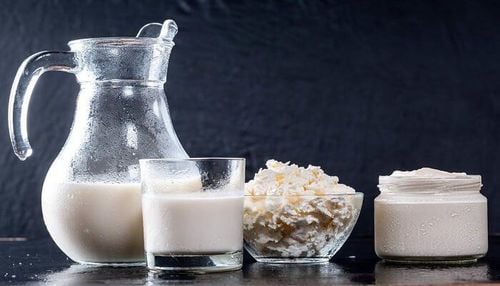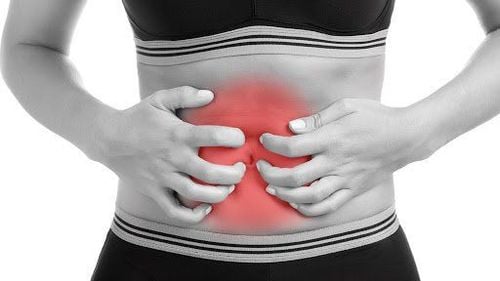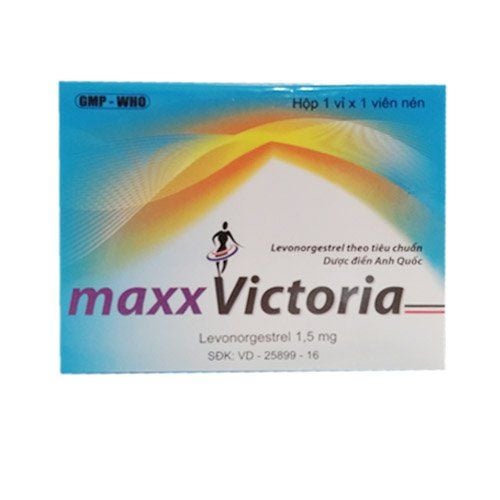This is an automatically translated article.
Post by Master, Doctor Mai Vien Phuong - Gastrointestinal Endoscopy - Department of Medical Examination & Internal Medicine - Vinmec Central Park International General Hospital.Many people with Crohn's disease avoid milk for fear that it will cause unpleasant symptoms, such as excess gas, abdominal cramps, and diarrhea. It is true that milk can cause these symptoms in some people with Crohn's disease, but that is usually because they are intolerant to the lactose found in milk.
1. What is Crohn's disease?
Crohn's disease is a type of inflammatory bowel disease, which usually occurs in the small intestine and colon. It can affect any part of the digestive tract. Crohn's severity ranges from mild to debilitating. Symptoms vary and can change over time. In severe cases, the disease can lead to flare-ups and life-threatening complications.
2. The link between Crohn's disease and milk Crohn's disease is thought to be an autoimmune disease that causes the lining of the digestive tract to become inflamed. Although the exact cause of this inflammation is not known, experts agree that food plays no role in triggering it. However, in recent years, some scientists have suggested a possible link between the dairy industry and Crohn's disease.
Milk and other dairy products are excellent sources of calcium, a mineral that people need to build and maintain strong bones. However, many people with Crohn's disease avoid milk for fear that it will cause unpleasant symptoms, such as excess gas, abdominal cramps, and diarrhea. While it's true that dairy can cause these symptoms in some people, it's usually because they're lactose intolerant.
People who are lactose intolerant have trouble digesting a sugar called lactose. Lactose is found exclusively in milk and dairy products. Humans are born with the ability to break down lactose into smaller, more digestible components. The first step in digestion is achieved with the help of an enzyme called lactase. Lactase is designed to break down the lactose molecule into smaller components, which are then absorbed by the intestines.
However, many adults lose the ability to produce lactase. This makes it difficult for their bodies to digest products containing lactose. Therefore, people who are lactose intolerant may experience intestinal discomfort when they consume milk. The degree of intolerance can vary from person to person. Some people can consume milk and dairy products in small amounts and without any problems. Others may be very lactose intolerant and need to take lactase supplements to help them digest dairy products properly.
While dairy can cause digestive problems in people with lactose intolerance, it's not necessarily something that people with Crohn's disease need to avoid. Even if someone with Crohn's disease is lactose intolerant, you can safely consume some dairy products that contain very little lactose. Includes:
Yogurt Butter Aged and hard cheeses, such as Parmesan and aged cheeses

3. What to eat with Crohn's disease? A diet plan that works for one person with Crohn's may not work for another. This is because the disease can involve different areas of the digestive tract in different people. It's important to find out what works best for you. This can be done by monitoring symptoms as you add or remove certain foods from your diet. Lifestyle and diet changes can help you reduce the recurrence of symptoms and reduce the severity of the disease. Here's the diet for people with Crohn's disease:
Adjust your fiber intake Some people need a high-fiber, high-protein diet. For others, the presence of leftovers from high-fiber foods like fruits and vegetables can aggravate the digestive tract. If this is the case, you may need to switch to a low-residue diet.
Limit fat intake Crohn's disease can interfere with the body's ability to break down and absorb fat. This extra fat travels from your small intestine to your colon, which can cause diarrhea.
Limit your dairy intake In the past, you may not have been lactose intolerant, but your body may develop difficulty digesting certain dairy products when you have Crohn's disease. Dairy consumption can lead to abdominal pain, cramping, and diarrhea for some people.
4. How to eat milk with Crohn's disease? Milk is often one of the first foods that people with Crohn's disease eliminate from their diet. However, not everyone with Crohn's disease is truly lactose intolerant, so avoiding all dairy may not be necessary. It can even backfire because milk is an excellent source of calcium. This is an especially important nutrient for people with Crohn's disease, as certain drug treatments and malabsorption conditions can cause calcium deficiency.
Instead of avoiding dairy products unnecessarily, it's better to try a diet. The elimination diet is an approach that can help identify food allergies or food intolerances. You keep a food diary for several weeks, recording every food you eat and how you feel after eating it. You also need to note how much food you eat and when.
Tracking your progress will help you identify which foods are causing your symptoms. Once you've found potential triggers, eliminate them from your diet over a two-week to two-month period. If symptoms go away, it can be assumed that you have an intolerance to the eliminated food. This can be confirmed by carefully adding foods to your diet. If symptoms reappear, it can be assumed that the food was not well tolerated. If symptoms persist during the elimination phase, it can be assumed that the food is not part of the problem and should be included in the diet.
Please dial HOTLINE for more information or register for an appointment HERE. Download MyVinmec app to make appointments faster and to manage your bookings easily.
References:Crohn's disease and ulcerative colitis diet and nutrition Q&A. (2014, January 17) ccfa.org/resources/diet-and-nutrition-1.html?referrer=https://www.google. com/ Fawzy, A., Prince, A., Hassan, A. A., Fayed, A., Zschock, M., Naga, M., ... El-Sayad, A. (2013, December). Epidemiological studies on Johne's disease in ruminants and Crohn's disease in humans in Egypt. International Journal of Veterinary Science and Medicine, 1 (2), 79-86 sciencedirect.com/science/article/pii/S2314459913000264 Is there a link between Johne's disease and Crohn's disease in humans? (2008, October) johnes.org/handouts/files/Bov-Vet_MAP-CD_link_Side-Bar_Oct-08-1.pdf Lactose intolerance. (2014, June) niddk.nih.gov/health-information/health-topics/digestive-diseases/lactose-intolerance/Pages/facts.aspx














